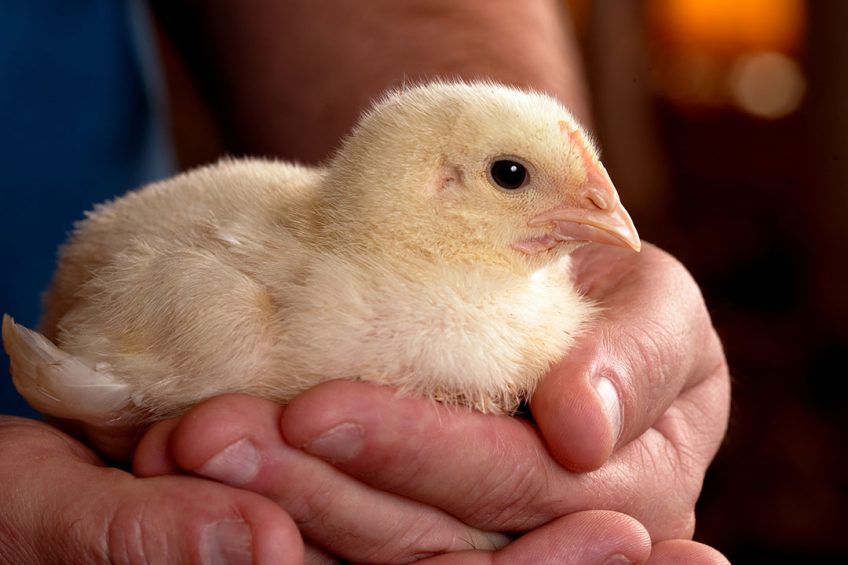Improving gut health by conserving intestinal integrity

Gut health plays a critical role in broiler performance and is largely reliant on maintaining the intestinal integrity of the birds. Producers seeking to optimise feed conversion efficiency, growth rates and a reduction in costly veterinary interventions should focus on maintaining intestinal integrity as a means to improve health, welfare and performance.
Maintaining a high degree of intestinal integrity (I2) ensures the optimal functionality of the intestinal tract.
This is because the intestinal lining performs a number of key functions such as digestion, secretion, absorption and transportation of nutrients. These functions are governed, positively and negatively, by the degree of intestinal integrity of each bird. Intestinal Integrity is affected by many things but 2 of the most critical are microbial infections and diet.
The impact of coccidia infections
Coccidiosis costs global poultry producers more than USD$ 4 billion in losses every year. This is because poor intestinal integrity, caused by coccidiosis, can increase FCR by as much as 10 points as well as negatively impact mortality rates and body weight gains. Combined costs for all these parameters can be as much as US $ 10.2 cents/bird, sometimes even higher. Despite this challenge, there are steps producers can take to proactively protect their birds’ Intestinal Integrity in order to promote optimal feed efficiency and weight gains.
Protecting I2 and gut health
For many decades anticoccidial molecules have been extensively used as in-feed additives to maintain intestinal integrity and, as a consequence, gut health and bird performance.
Anticoccidial treatments fall into 2 groups:
- Chemical anticoccidials
- Ionophore anticoccidials.
Chemical anticoccidials have worked well for severe challenges, but it has been observed that longer-term usage can result in increased resistance. Contrastingly, ionophores have proven effective in preventing coccidiosis while also allowing the birds’ natural immunity to develop in order to mitigate the risk of resistance.
Figure 1 – I2 scores for flocks receiving continuous Maxiban vs. flocks on rotation programmes.

Potentiated ionophores
Potentiated ionophores are in feed supplements which combine 2 synergistic ionophore molecules, each included at lower dose rates than their ‘stand-alone’ inclusion rates. This has the advantage of not ‘selecting’ for resistance which may explain why the Narasin + Nicarbazin (Maxiban) combination is able to be used continuously without rotation. This continuous use is supported by EU performance and health data from the field. When 3 years of continuous Maxiban usage was analysed there was no evidence for any loss of intestinal health, coccidiosis control or broiler performance. On the contrary, performance of flocks using Maxiban continuously over this extended period was superior at all times to those flocks adopting ionophore rotation programmes (Figure 1).
This ongoing efficacy is also borne out by studies in the USA where Maxiban was given continuously for 10 broiler grow-outs over 16 months without loss of performance. In fact, these long-term, continuous use studies indicated that not rotating Maxiban yielded better performance results for FCR, I2, lesion scores, oocyst shedding and weight gain (Figure 2).
It is not just microbial infections that are detrimental to the intestinal integrity of broiler flocks. It is also important to evaluate, and manage, the inflammatory effect that typical broiler diets can have on the intestines the broilers during the grow-out period.
Figure 2 – Mean E.acervulina lesion scores for flocks on continuous Maxiban vs. flocks on rotation programmes.

The impact of broiler feeds on gut health
Typical broiler diets contain antinutritive factors called ß-mannans that are derived from the soya beans processed to make the feed. These β-mannans provoke an innate immune response, that causes intestinal inflammation with a consequent negative impact on both gut health and broiler performance.
This Feed Induced Immune Response (FIIR) diverts vital energy away from cell repair and growth which, in turn, reduces animal performance overall. Even in good commercial production conditions, β-mannans have been observed to have the following costly impacts:
- 1-5 % higher incidence of conditions related to intestinal health
- Increased susceptibility to infections
- 3.4% higher incidence of pododermatitis
- Higher need for antibiotic treatment
- Up to 3% loss of metabolisable energy (about 90 kcal/kg)
Mitigating the response to β-mannans
Preventing β-mannans from causing an unnecessary, innate immune response reduces the impact of infection challenges in broilers.
β-mannanase (Hemicell) is a unique, energy sparing enzyme that breaks down ß-mannans so they no longer trigger the feed-induced immune response. This has a positive impact on the birds’ intestinal Integrity and conserves energy for growth and performance. Across 44 different poultry sites, Elanco’s HTSi intestinal health monitoring programme has tracked and quantified the performance of birds receiving Hemicell-feed in comparison to control birds not receiving it in their feed. The results have established many significant performance variances across a number of key parameters as summarised on Table 1.
Maintaining I2 for better gut health
2 of the main, universal insults to the intestinal integrity of broilers are coccidia infections and feed-related inflammation of the gut lining.
Coccidia infections of broiler flocks are a global phenomenon as is the inclusion of soya meal, containing ß-mannans, in typical poultry diets. These threats to bird health have a significant effect on bird welfare and overall production performance.
Fortunately, for poultry producers, there are successful solutions available to positively management this impact:
- Ionophores, particularly potentiated ionophores such as Maxiban, are highly successful in reducing the damage to gut health posed by coccidial infections without inducing resistance
- Feed induced inflammatory response can be mitigated against by inclusion of the enzyme β-mannanase (Hemicell) with a resultant improvement across many key performance parameters.
References available on request
Author:
Elanco
Join 31,000+ subscribers
Subscribe to our newsletter to stay updated about all the need-to-know content in the poultry sector, three times a week. Beheer
Beheer






 WP Admin
WP Admin  Bewerk bericht
Bewerk bericht